When it comes to prescription drug costs, there can be significant differences between employer-sponsored health plans and Medicare. Understanding the differences between the two can help your clients save money and ensure you help them get the coverage they need. Here’s what your customers need to know about employer-sponsored health plans and Medicare.
Cost:
Coverage:
Out-of-pocket costs:
Formularies:
Specialty drugs:
Prior authorization:
Step therapy:
Employer-sponsored health plans and Medicare can have significant differences as far as prescription drug costs. Understanding the differences can help customers make an informed decision about which plan is best for them. Make sure to emphasize to clients that they should compare the cost, coverage, and out-of-pocket expenses for each plan before making a decision.
Your next step as an agent is to learn how Medicare Advantage Plans (MAPD) and Prescription Drug Plans (Part D) play a role in helping your clients control their prescription drug costs. Work with Agility to learn more!
Are you contracted to sell Medicare plans yet? Contact us to get started today!

Agility Producer Support
(866) 590-9771
support@enrollinsurance.com




